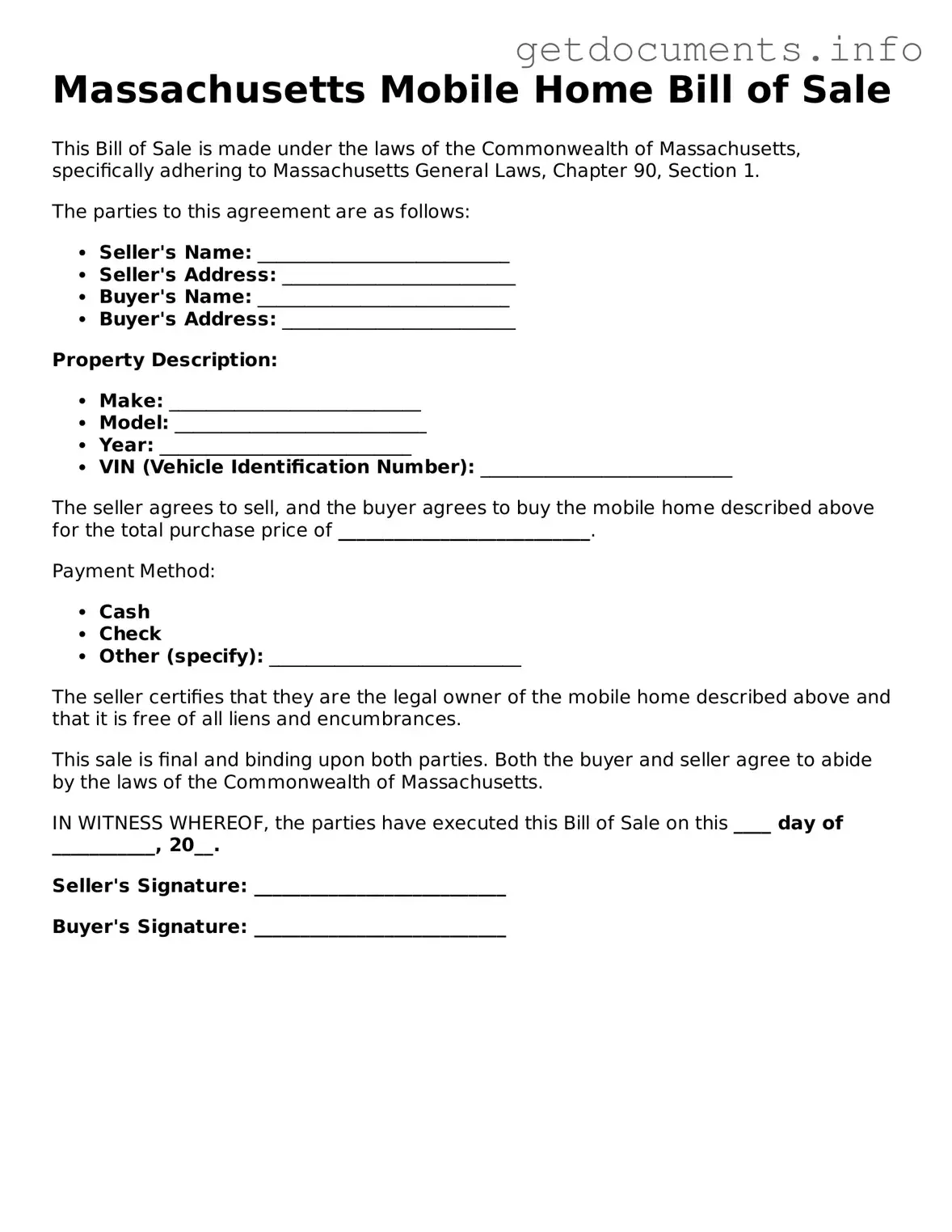Free Mobile Home Bill of Sale Template for Massachusetts
The Massachusetts Mobile Home Bill of Sale form serves as a legal document that records the transfer of ownership for a mobile home. This form includes essential details about the buyer, seller, and the mobile home itself, ensuring a clear transaction. To facilitate the process, consider filling out the form by clicking the button below.
Access Mobile Home Bill of Sale Editor

Free Mobile Home Bill of Sale Template for Massachusetts
Access Mobile Home Bill of Sale Editor
Got places to be? Complete the form fast
Fill out Mobile Home Bill of Sale online and avoid printing or scanning.
Access Mobile Home Bill of Sale Editor
or
⇩ PDF File
